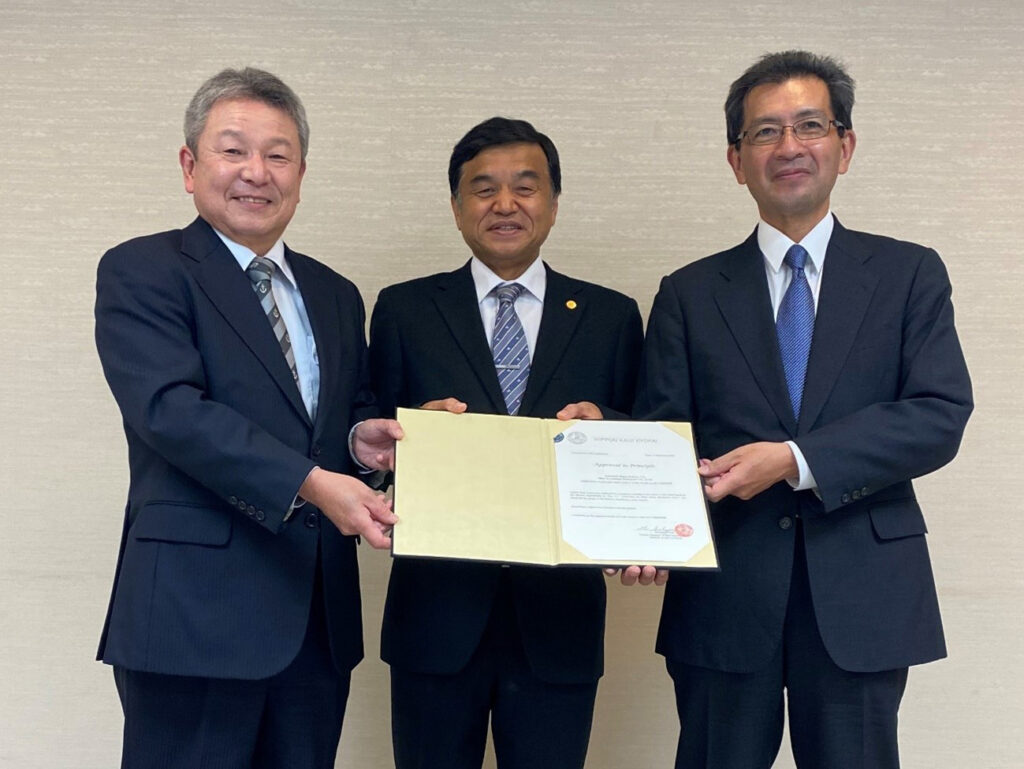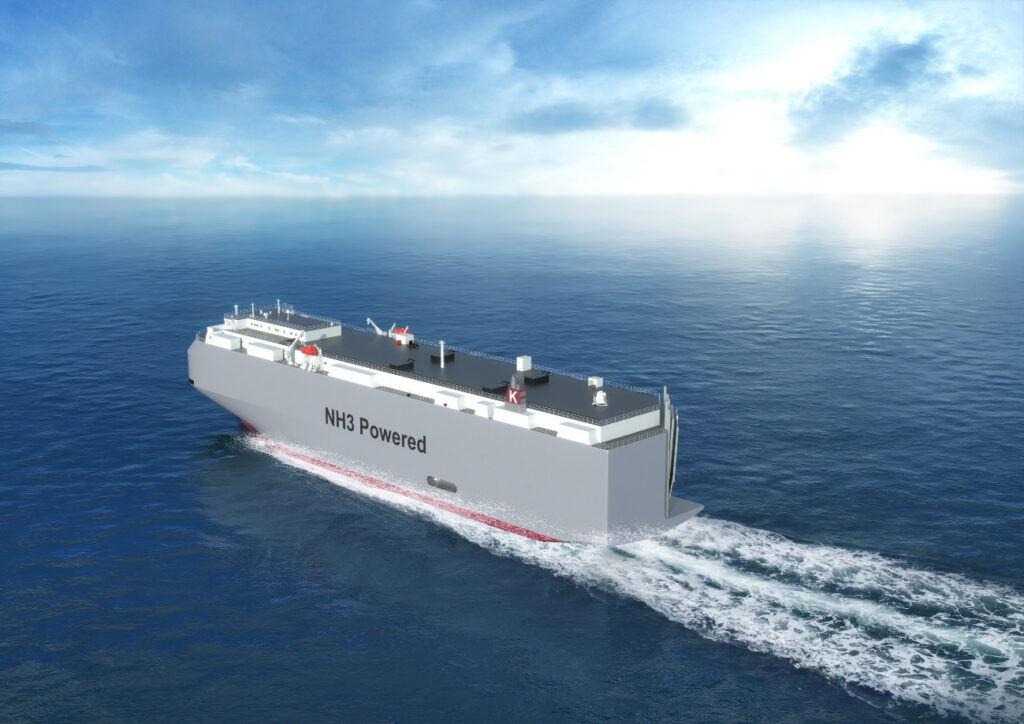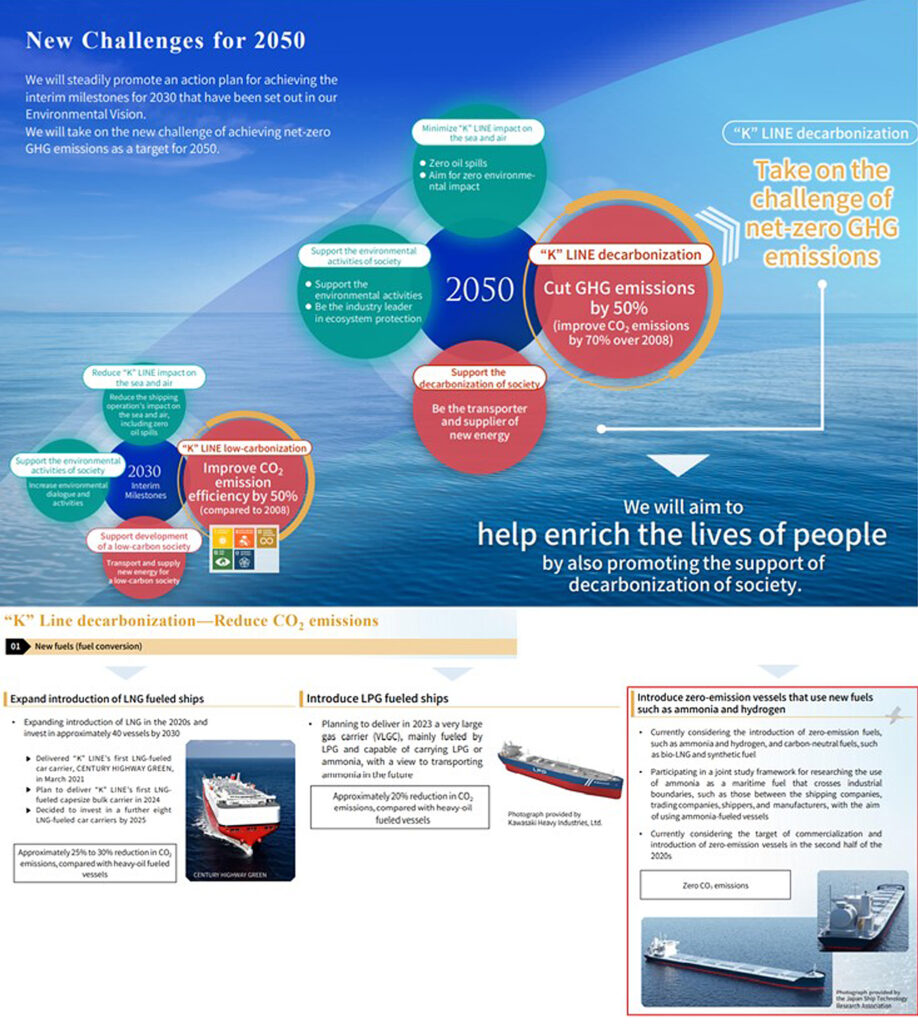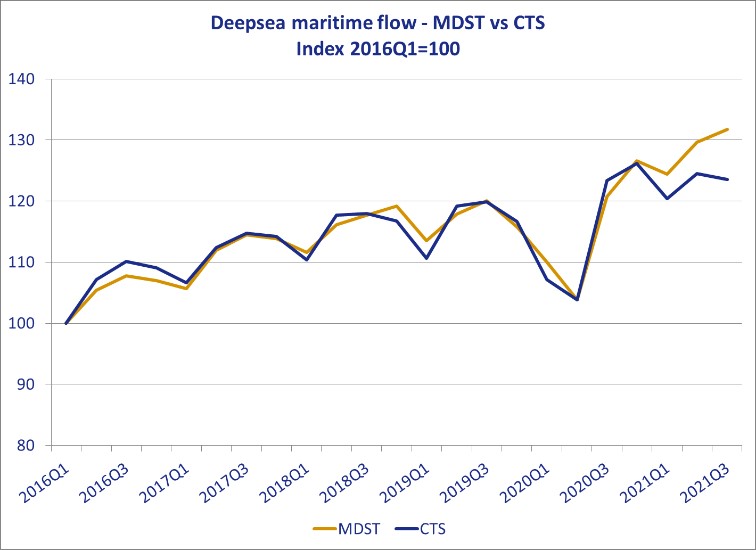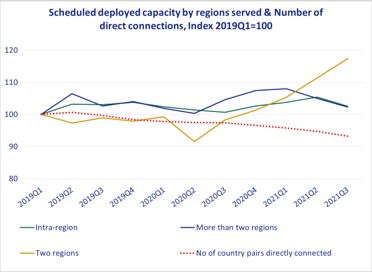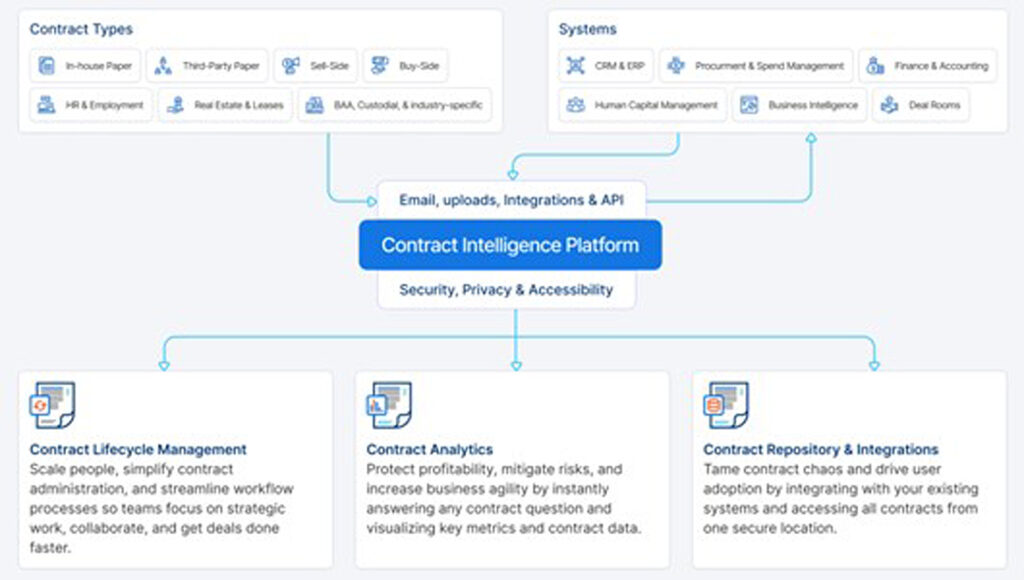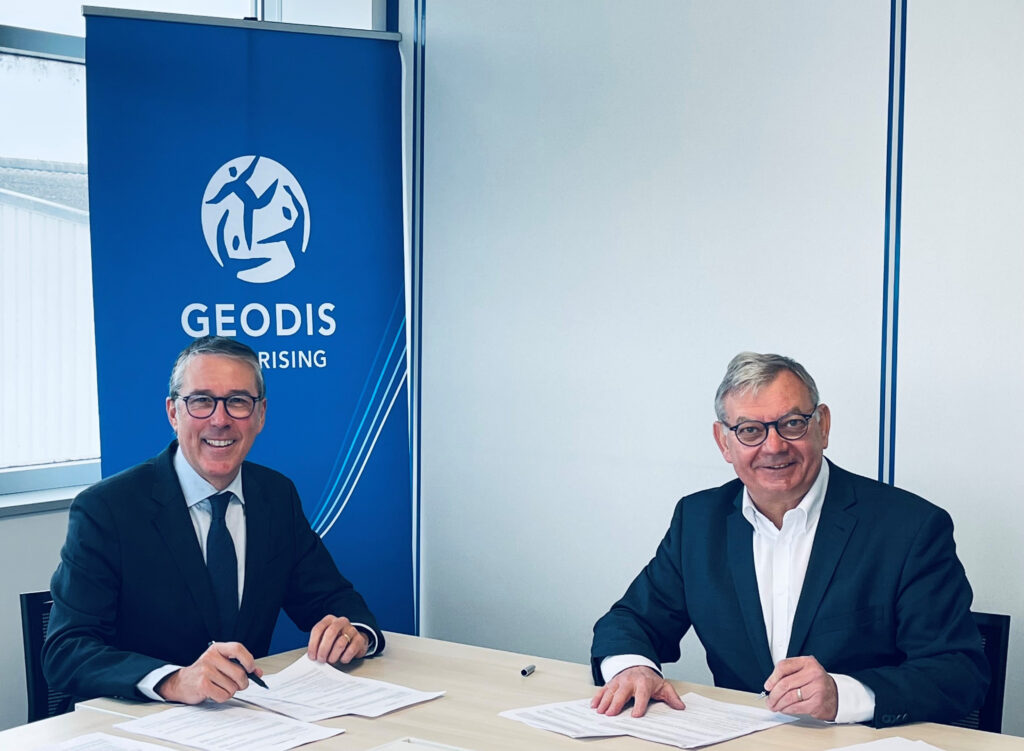Crime report from TT Club and BSI finds over three-quarters of cargo theft occurs at logistics hubs and warehouses, with Free Trade Zone (FTZ) particularly vulnerable locations.
Dubai & London, 16th December 2021
The well-established collaboration between international freight transport insurer, TT Club and the supply chain services and solutions team at BSI, the business improvement and standards company has produced the latest report on trends in the theft of goods entitled, ‘Cargo Crime in Gulf Countries and Regional Free Trade Zones’¹. Intended as a risk mitigation tool for transport operators, its timing might be more relevant given the spike in cargo movements running-up to the seasonal festivities.
Key findings include:
- 76% of cargo theft is from warehouse and storage facilities
- Crime hot-spots in UAE & Saudi Arabia
- High-value goods such as electronics targeted
- Insider assistance and corruption plays a prominent role
- Smuggling of illicit contraband prevalent in Free trade Zones (FTZ)
TT Club’s Mike Yarwood comments, “Our reports are intended to alert those in the supply chain to the variable and developing trends in the risk of cargo theft during intermodal transportation. The unique combination of BSI sourced data on criminal activity and TT Club’s insurance claims records provides valuable intelligence to operators.”
“Regular updates of this nature are essential as criminal gangs are constantly altering their points of attack. The current prevalence of supply chain congestion, delays, disruption, and in the Middle East region in particular packed warehouses, makes such information critical.”
The report highlights that warehouse thefts and supply chain corruption are the stand-outs, with a concentration on higher risk areas across the United Arab Emirates (UAE) and in the Kingdom of Saudi Arabia (KSA). The role special economic zones play in the Middle East also effects regional disparities in cargo theft.
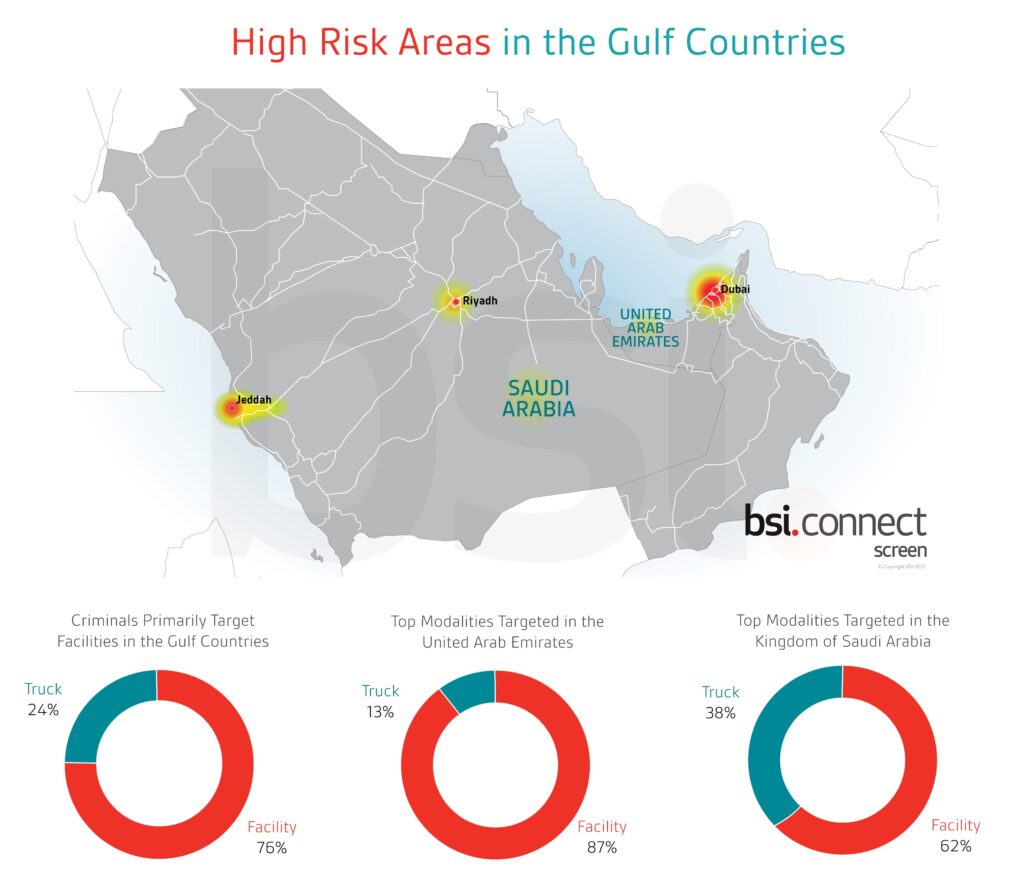
Free Trade Zones (FTZ) are a significant feature of the regional economy and represent potential vulnerabilities for supply chains by virtue of facilitating high volumes of trade under simplified customs procedures that can provide opportunities for criminals to act. Furthermore, as Gulf Cooperation Council (GCC) economies return to pre-pandemic levels, and data provided by the International Road Transport Union (IRU) is projecting growth in trade², it is possible that criminals will also seek to exploit these higher volumes of cargo throughput to introduce illicit drugs and counterfeited products into shipments.
Umberto de Pretto, Secretary General, International Road Transport Union comments, “The IRU, together with its members and partners, continues to strengthen global transport supply chains, notably through the implementation of international standards such as TIR for compliance management and security, and through innovative training to help road transport professionals identify risks and adapt operations to avoid security threats.”
There is also valuable guidance on mitigating the risk contained in the report. These guidelines cover avoiding the introduction of drugs into shipments; reducing theft from facilities and combating counterfeit smuggling, all of which are of particular concern in the Middle East region.
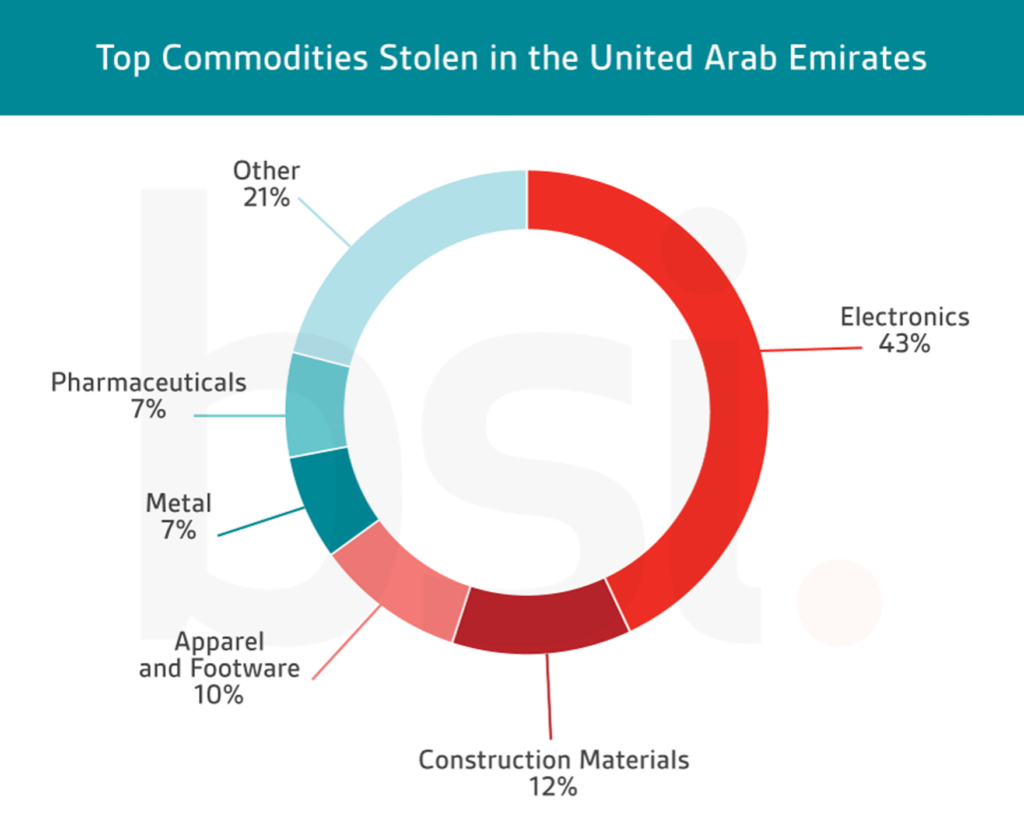
“Operators should be consistent in their vigilance, especially in the current season of festivities when the movement of gifts is at a peak” recommends Yarwood. “TT’s intention is to help reduce theft related loss and to that end these reports offer loss prevention advice to complement the joint analysis of current trends. As well as financial damage these incidents can cause severe operational disruption and unquantifiable reputational damage to supply chain service providers. As a consequence, it remains of key importance to the transport industry to identify, prevent and report any criminal activity.”
¹A PDF of the full report is available for free download Here
ENDS
About TT Club
TT Club is the established market-leading independent provider of mutual insurance and related risk management services to the international transport and logistics industry. TT Club’s primary objective is to help make the industry safer and more secure. Founded in 1968, the Club has more than 1100 Members, spanning container owners and operators, ports and terminals, and logistics companies, working across maritime, road, rail, and air. TT Club is renowned for its high-quality service, in-depth industry knowledge and enduring Member loyalty. It retains more than 93% of its Members with a third of its entire membership having chosen to insure with the Club for 20 years or more.
About BSI
BSI is the business improvement and standards company that enables organizations to turn standards of best practice into habits of excellence, ‘inspiring trust for a more resilient world’. For over a century BSI has driven best practice in organizations around the world. Working with over 77,500 clients across 195 countries, it is a truly global business with skills and experience across all sectors including automotive, aerospace, built environment, food and retail and healthcare. Through its expertise in Standards and Knowledge, Assurance Services, Regulatory Services and Consulting Services, BSI helps clients to improve their performance, grow sustainably, manage risk and ultimately become more resilient.
To learn more, please visit: www.bsigroup.com
About BSI Supply Chain Services and Solutions
BSI Supply Chain Services and Solutions is the leading global provider of supply chain intelligence, global supply chain verification auditing services, audit compliance and risk management software solutions, and advisory services. BSI’s supply chain services and solutions and services can work independently to address specific needs or combined together to gain unparalleled visibility into your global operations. Implementing BSI’s holistic supply chain risk management suite provides organizations with a complete solution for a more sustainable and secure supply chain.
To learn more, please visit www.bsigroup.com/supplychain







